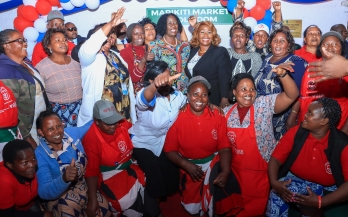

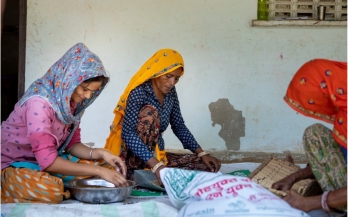
GAIN Working Paper n°46-Opportunities for repurposing waste products into nutritious foods
- 20/01/2025
Reducing food waste represents an important opportunity for shrinking the environmental footprint of food systems and supporting planetary health – and if this waste can be repurposed into nutritious foods, then it could also be a benefit for nutrition and human health. To understand the opportunities for repurposing waste products or byproducts into foods, this paper presents a rapid analysis based on desk research and key informant interviews. The analysis considers byproducts across four categories: fruit and vegetable residues, seeds and seed residues, other plant byproducts, and animal byproducts. The assessment considered availability, potential uses, consumer acceptability, food safety, nutritional quality, and feasibility.
United Nations Biodiversity Conference - COP16
- Colombia
At COP 16, governments will be tasked with reviewing the state of implementation of the Kunming-Montreal Global Biodiversity Framework. Parties to the Convention are expected to show the alignment of their National Biodiversity Strategies and Action Plans (NBSAPs) with the Framework. COP 16 will further develop the monitoring framework and advance resource mobilisation for the Global Biodiversity Framework. Among other tasks, COP 16 is also due to finalise and operationalise the multilateral mechanism on the fair and equitable sharing of benefits from the use of digital sequence information on genetic resources.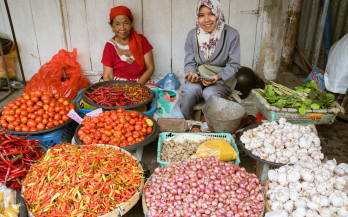
Strengthening Food Rescue Efforts in Indonesia: A Pathway to Sustainable Food Security
- 27/08/2024
This brief explains some key findings and recommendations from a recent roadmap report on FLW reduction produced by the Ministry of National Development Planning (BAPPENAS), with key partnerships from the Global Alliance for Improved Nutrition (GAIN). It highlights the crucial role of coordinated efforts in achieving the desired reduction in FLW and thereby mitigating its environmental and economic impacts.
Nutribike: The bike that goes further to enhance healthier diets in Pemba
One of the biggest challenges street vendors face in Pemba and other parts of Mozambique, is having to travel long distances by foot, reaching more customers. NutriBike is an intervention to solve the storage challenges faced by street vendors. It provides street vendors suitable equipment for preserving and transporting their products maintaining quality, as well as enabling them to cover longer distances and faster.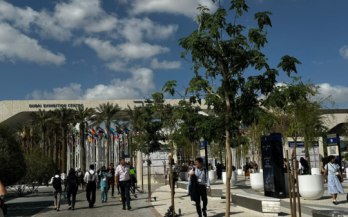
Webinar: COP28 – what does it mean for Nutrition in Emergencies Practitioners?
- Global
During this coffee chat, the panel will unpack and demystify the COP and what it means for NIE practitioners.
ATACH Global Meeting: Transforming health systems in the face of climate change
- Madrid, Spain, Global
Building on the health outcomes of COP26, COP27 and COP28, particularly the Health Day, COP28 UAE Declaration on Climate and Health, the Global Goal on Adaptation, the Sharm-El-Sheikh Adaptation Agenda, and the Guiding Principles on Financing Climate and Health Solutions, members of the Alliance for Transformative Action on Climate and Health (ATACH) will convene to agree on how these outcomes should shape the priorities of the ATACH moving forward responding to country demands and promoting a better understanding of the barriers and opportunities to progress this important agenda. Members will also share experiences and expertise for building climate-resilient and low-carbon health systems.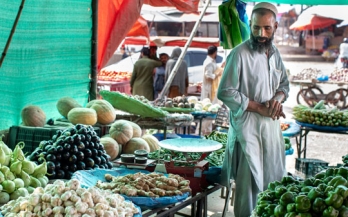
Reaching Lower-Income Consumers with Nutritious Foods - Cutting Costs by using Waste Products and Less-desired Parts
Food loss and waste is a major problem worldwide: it is estimated that 14% of all food produced globally is lost between harvest and retail, while 17% is wasted. For the most nutrient-dense foods, which tend to be highly perishable, levels are even higher, exceeding 20% for the category of fruits and vegetables.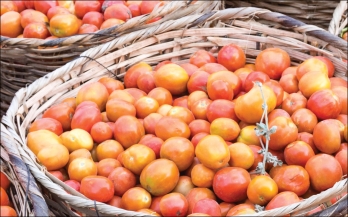
Adsorption Isotherms and Thermodynamic Properties of Dried Tomato Slices
- 21/06/2022
This paper, published in Advances in Nutrition & Food Science, explores the moisture adsorption behavior of dried tomato slices purchased from a food market in Abeokuta, Ogun State, Nigeria.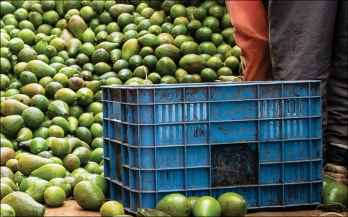
Potential Socio-Economic Impact of Replacing Traditional Woven Baskets with Reusable Plastic Crates On Livelihoods Of Basket Makers In Southeast Nigeria
- 10/08/2022
In Nigeria, packaging of fresh fruits and vegetables especially tomatoes is mostly done using traditional woven baskets from palm fronds. This study assessed the potential impact of replacing these woven baskets with plastic crates.